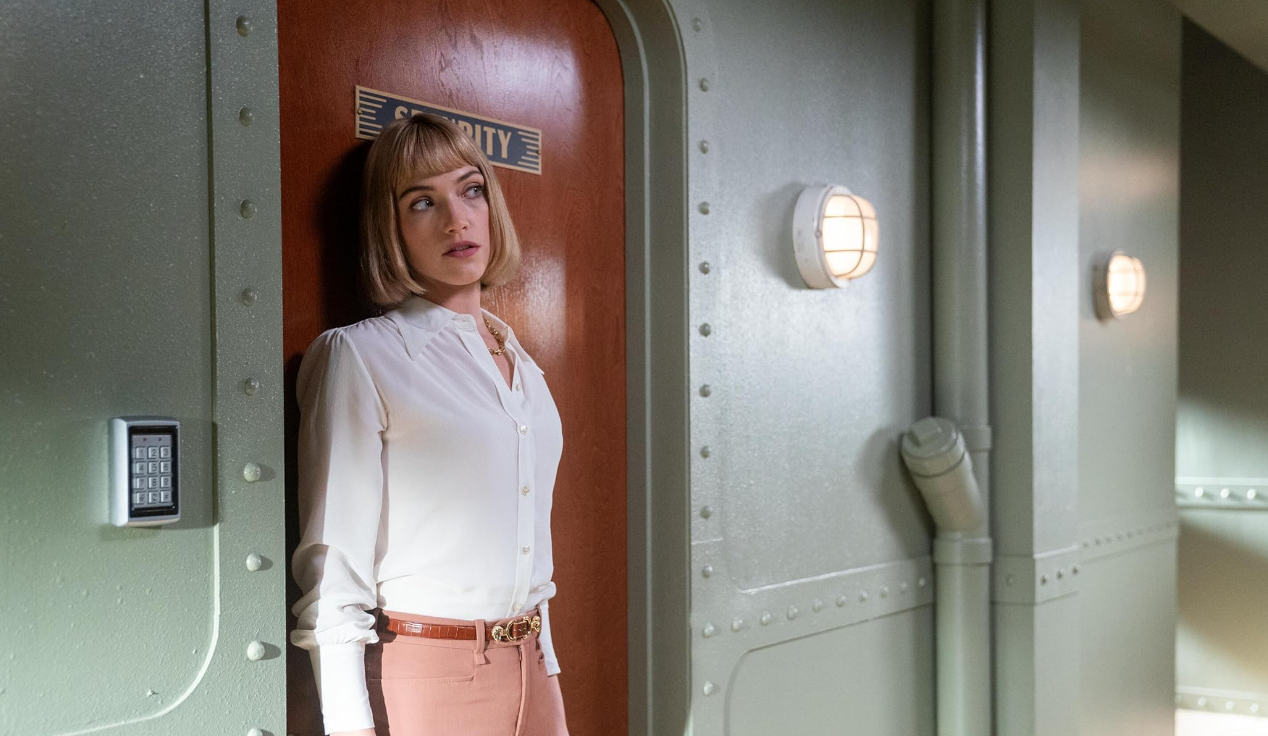Movies
Black Swan
“Most impressive about the film, however, is the script by Mark Heyman and Andres Heinz, which is comprised of everything from psychological and body horror to sexual awakenings and self-preservation.”
After a more than satisfying character piece and study on the subject of artistic peaking and anxiety, Darren Aronofsky returns to the world of performers with Black Swan, a companion piece to The Wrestler that covers similar ground in some extraordinarily different ways. In some respects, it’s a prequel to the Mickey Rourke starrer; instead of focusing on the death and rebirth of an entertainer’s career, we’re given a glimpse into the life of a struggling up-and-comer dying to start one. It’s true that many films have covered the same subject, but I guarantee you’ve never seen it presented in quite the same way.
Natalie Portman stars as Nina Sayers, a young ballerina who fantasizes of taking the lead in her company’s performance of Swan Lake, a role that requires her to play both the pure and virginal Swan Queen as well as the seductive and sinister Black Swan. Nina is disgustingly perfect and certainly suitable for the more innocent of the parts, but her demanding director Thomas Leroy (Vincent Cassel) thinks she doesn’t have the darker nature to encompass the sexually charged doppelganger. He casts her anyway, but without the ability to stylistically improvise and let loose in her performance, Nina finds herself unable to reach the heights of Beth Macintyre (Winona Ryder), her employer’s former star who was forced into early retirement. Newly arrived dancer Lily (Mila Kunis), on the other hand, possesses the wild streak Nina does not, and embodies the persona she needs to succeed as the Black Swan. Struggling to identify her as friend or foe, Nina attempts to lose herself in the role without destroying herself.
Surface wise, Black Swan takes on the same visual presentation as The Wrestler’s grainy, voyeuristic cinematography but Matthew Libatique’s approach improves upon it greatly, adding a graceful quality to it that mirrors the play’s whimsical choreography. Frequent Aronofsky collaborator and composer Clint Mansell created a score that works hand-in-hand with the film’s traditional horror sound design, contemporizing Swan Lake’s compositions with darker ambiance without losing its classical performance hall beauty.
Most impressive about the film, however, is the script by Mark Heyman and Andres Heinz, which is comprised of everything from psychological and body horror to sexual awakenings and self-preservation. It’s clear early on that Black Swan isn’t beholden to any one genre, never giving viewers an opportunity to confidently predict what sort of terrible hallucination or actual event will befall Nina. As her perception of reality degrades, nothing can be concretely identified as an actual occurrence, even after it seems it has been. The four main female characters in the film all act as different parts of Nina’s personality, as if her mind has been broken from the stress of perfection, a mental instability previously explored by Aronofsky in Pi. Nina, the subdued and innocent perfectionist, is only part of a greater construct, sharing equal space – but not necessarily screen time – with Lily, her dark side that tries to steal the spotlight; her well-intended but often domineering and controlling mother (Barbara Hershey), who gave up her career and is living vicariously through her daughter; and Beth, who struggled to retain her star status and stay relevant after her fifteen minutes were up, a scenario Nina fears will be happening to her sooner than expected. Nina’s psyche, or what of it that may or may not exist, intermittently makes everyone she crosses paths with her enemy, even herself.
Those expecting the nightmarish, hallucinatory journey of Suspiria because of the film’s setting won’t have their wish fulfilled, but should be equally enamored with Aronofsky’s cautionary tale of pushing yourself to the limit that shares more in common with Polanski’s Apartment Trilogy and the early works of De Palma and Cronenberg than any performer-centric film. Portman’s turn as Nina is poetically haunting and quite possibly the greatest – and most demanding – performance of her career. Moments into Black Swan, it’s obvious that this is just as much a passion project as it was for Aronofsky, resulting in a collaborative team perfectly suited for exploring the duality of human nature and the struggle of good and evil in a film that is as beautiful as it is harsh.

Movies
‘Drop’ – Violett Beane Joins the Cast of Christopher Landon’s New Thriller

Christopher Landon (Happy Death Day, Freaky) is staying busy here in 2024, directing not only the werewolf movie Big Bad but also an upcoming thriller titled Drop.
The project for Blumhouse and Platinum Dunes is being described as a “fast-paced thriller,” and Deadline reports today that Violett Beane (Truth or Dare) has joined the cast.
Newcomer Jacob Robinson has also signed on to star in the mysterious thriller. Previously announced, Meghann Fahy (“White Lotus”) will be leading the cast.
Landon recently teased on Twitter, “This is my love letter to DePalma.”
Jillian Jacobs and Chris Roach wrote the script.
Michael Bay, Jason Blum, Brad Fuller and Cameron Fuller — “who brought the script in to Platinum Dunes” — are producing the upcoming Drop. Sam Lerner is an executive producer.
THR notes, “The film is a Platinum Dunes and Blumhouse production for Universal.”






